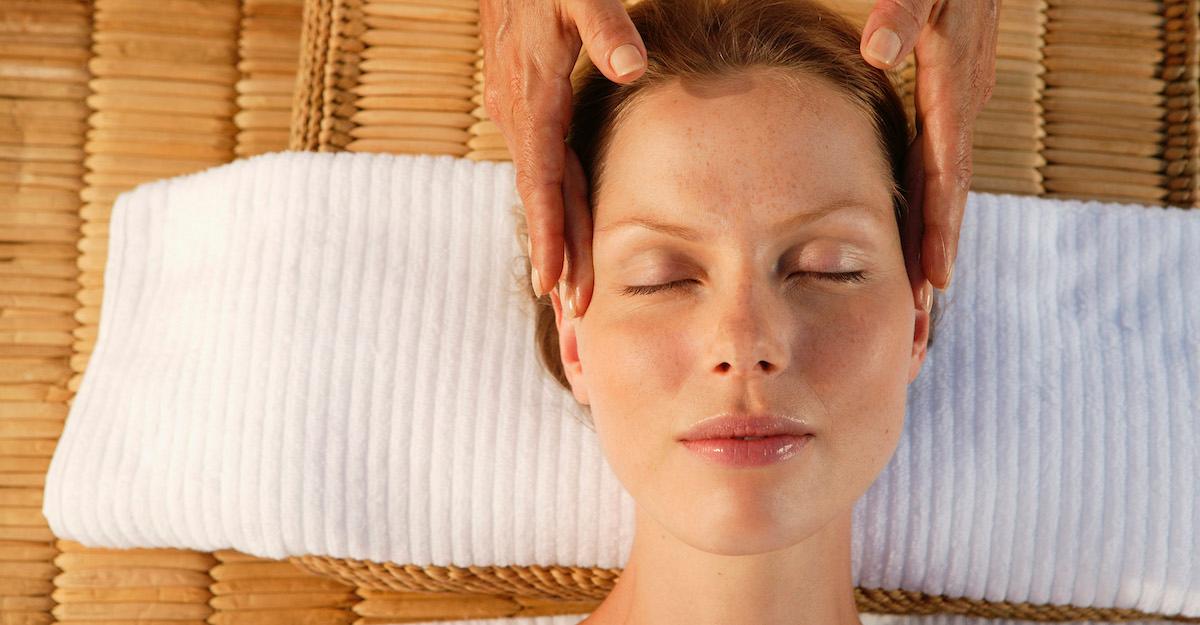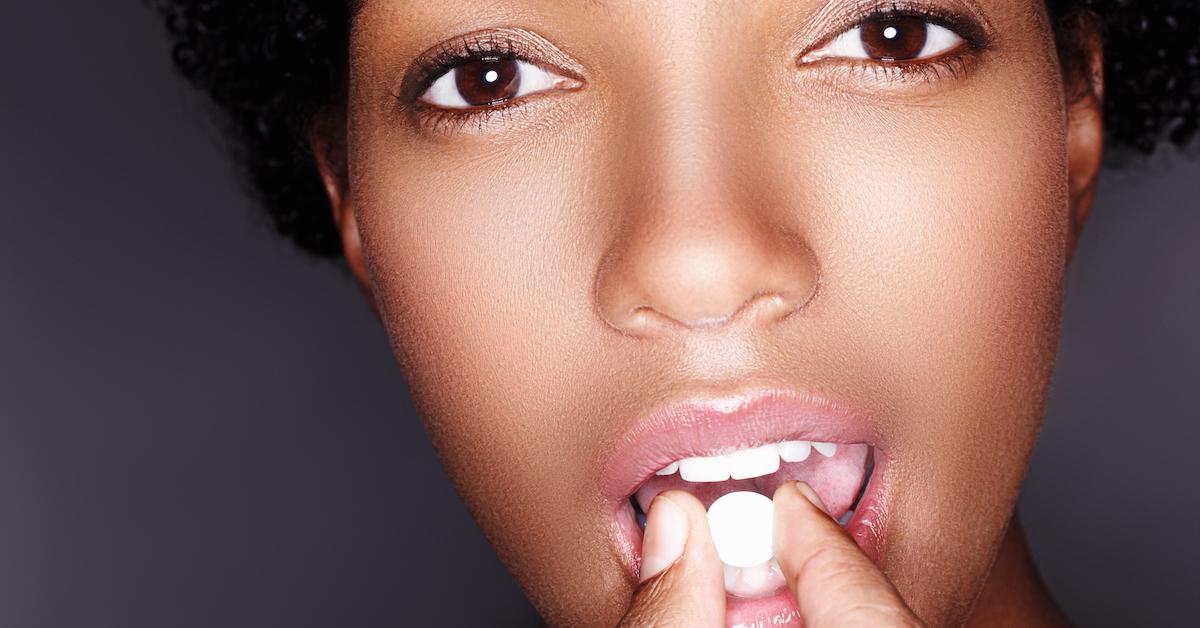8 Natural Headache Remedies That Will Make Your Pain Disappear
Published March 24 2022, 3:02 p.m. ET

Headaches are an unfortunate ailment that become more common with age. In fact, according to the WHO, 50 to 75 percent of adults that were between 18 and 65 years of age reported having a headache in the last year, and 30 percent of those people have reported migraines. Needless to say, it's common and usually relatively harmless, but it's incredibly annoying — which is why we've come up with eight natural headache remedies.
Drink water to stave off dehydration headaches.

Everyone says it... because it's true. Drinking more water can definitely help prevent headaches, because according to Cleveland Clinic, headache pain can appear when your body isn't getting the fluids it needs. You can also experience dizziness and dry mouth — so drink more water, get a little rest, and you should be just fine.
Use relaxation techniques for tension headaches.

Tension headaches are all too real — if you're under increased amounts of physical or mental stress, you're likely to get major headaches that are due to muscle tension, according to Harvard Health. You can relieve these types of headaches by doing yoga or meditating, getting more sleep, and by massaging your pressure points, to hopefully loosen up that tension.
Magnesium can be used to treat migraines.

Studies show that people who get migraines have lower magnesium levels, so some doctors have started prescribing magnesium supplements. According to WebMD, you can also get magnesium from a number of foods, including spinach, beans, almonds, cashews, peanut butter, and whole grains.
Ginger tea is anti-inflammatory.

According to The Health Site, a widely praised migraine reliever is ginger tea. Ginger reportedly contains anti-inflammatory properties that combat migraines by inhibiting prostaglandins, which cause headaches. Ginger also helps curb nausea, which is a common symptom of migraine. You can find ginger tea in your grocery store's health aisle — it's great with oat milk.
Use a cold or hot compress.

Both ice and heat is useful for relieving pain — especially headache pain. It all depends on what you prefer, according to Everyday Health. Simply place it on your forehead, temples, or back of the neck, depending on where the pain stems from, and keep a cloth between your skin and the hot or cold back. Also make sure there aren't any leaks, especially if the pack has chemicals inside to maintain its temperature.
Butterbur prevents and reduces migraines.
Butterbur, which is also known as Petasites hybridus, is known to prevent and curb migraines in both adults and children. According to Healthline, butterbur grows as a shrub, though it's an herb that can be taken in the form of a capsule or oil. Instead of taking it when you already have a headache, most people take it regularly, if they are more susceptible to headaches.
Take vitamin B2.

Pop some vitamins! (as long as a doctor says it's safe to do so). According to Insider, a controlled study in 2015 showed that taking 400 milligrams of vitamin B2 daily can reduce migraine frequency and pain. Although it's currently unclear why B2 prevents migraines, and if it works for everyone, it's something to consider.
Take a screen break!

If you're generally attached to your screen, CureHeadaches.org encourages you to take a screen break. Too much time spent on your devices can lead to digital eye strain, which can make you tired, cause your eyes to itch or burn, or cause headaches centered around your temples or eyes.
Green Matters’ new book, Green Living, is the perfect guide to living an eco-friendly lifestyle for people at every stage of the process. You can order Green Living here.